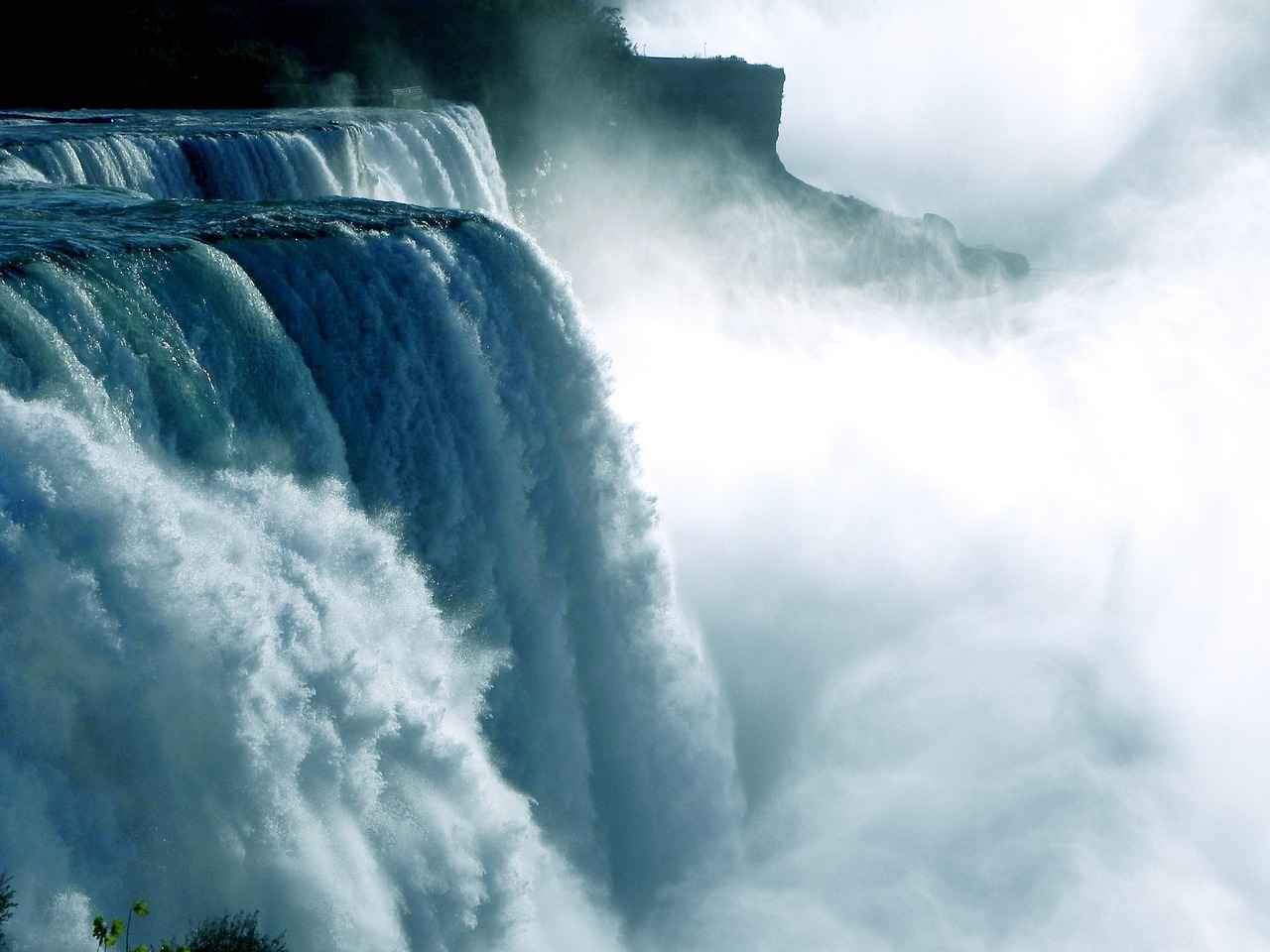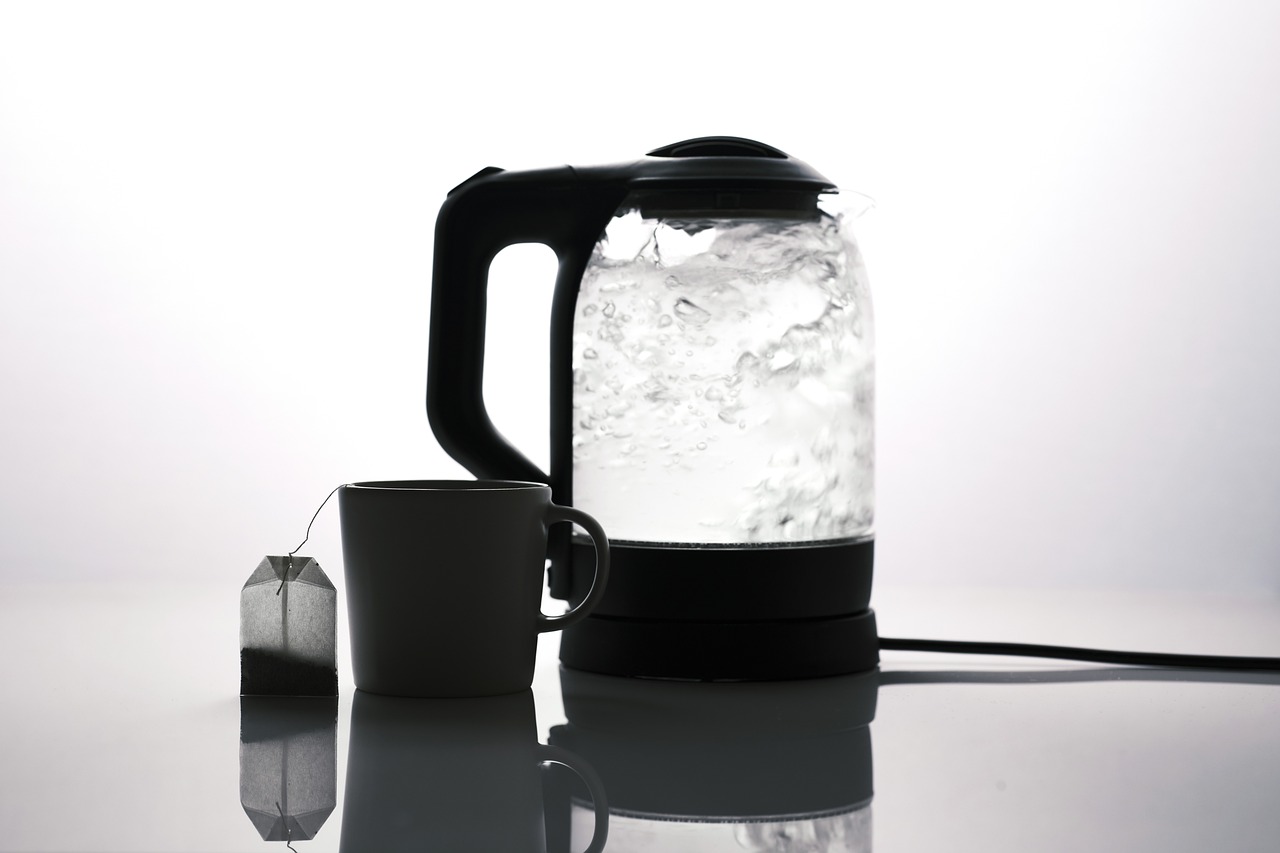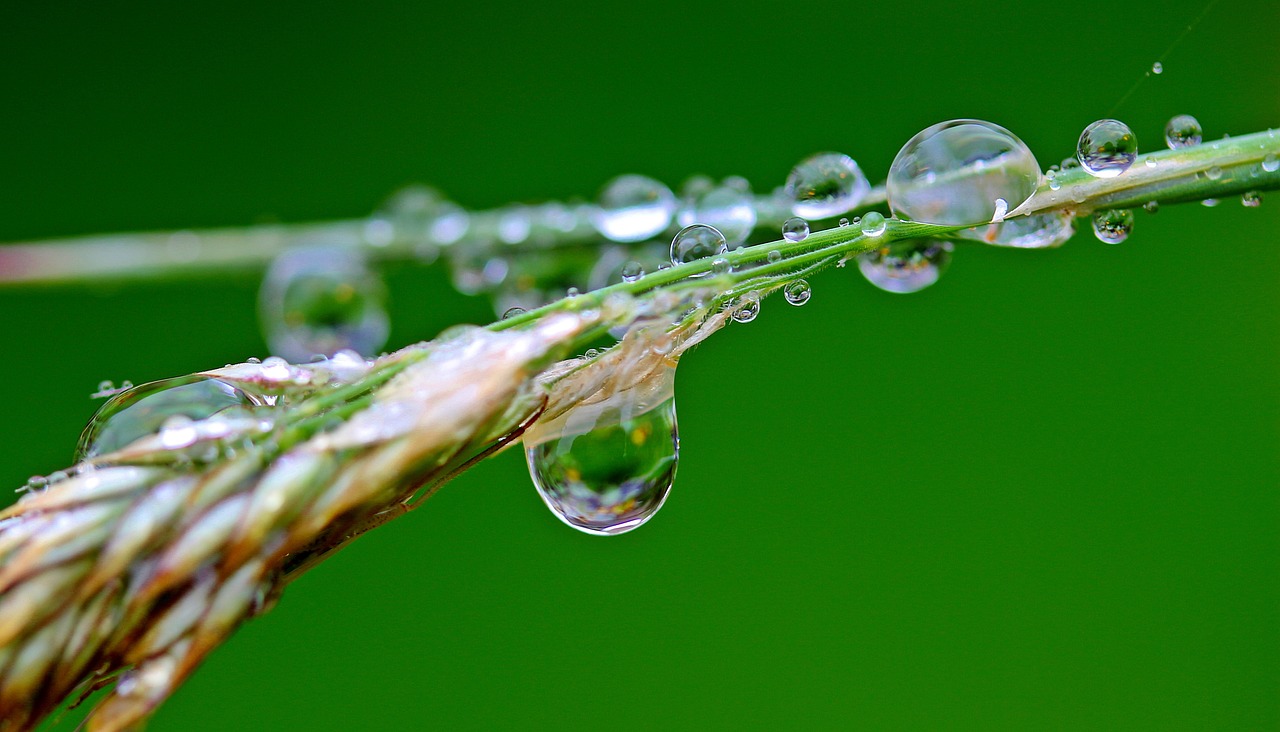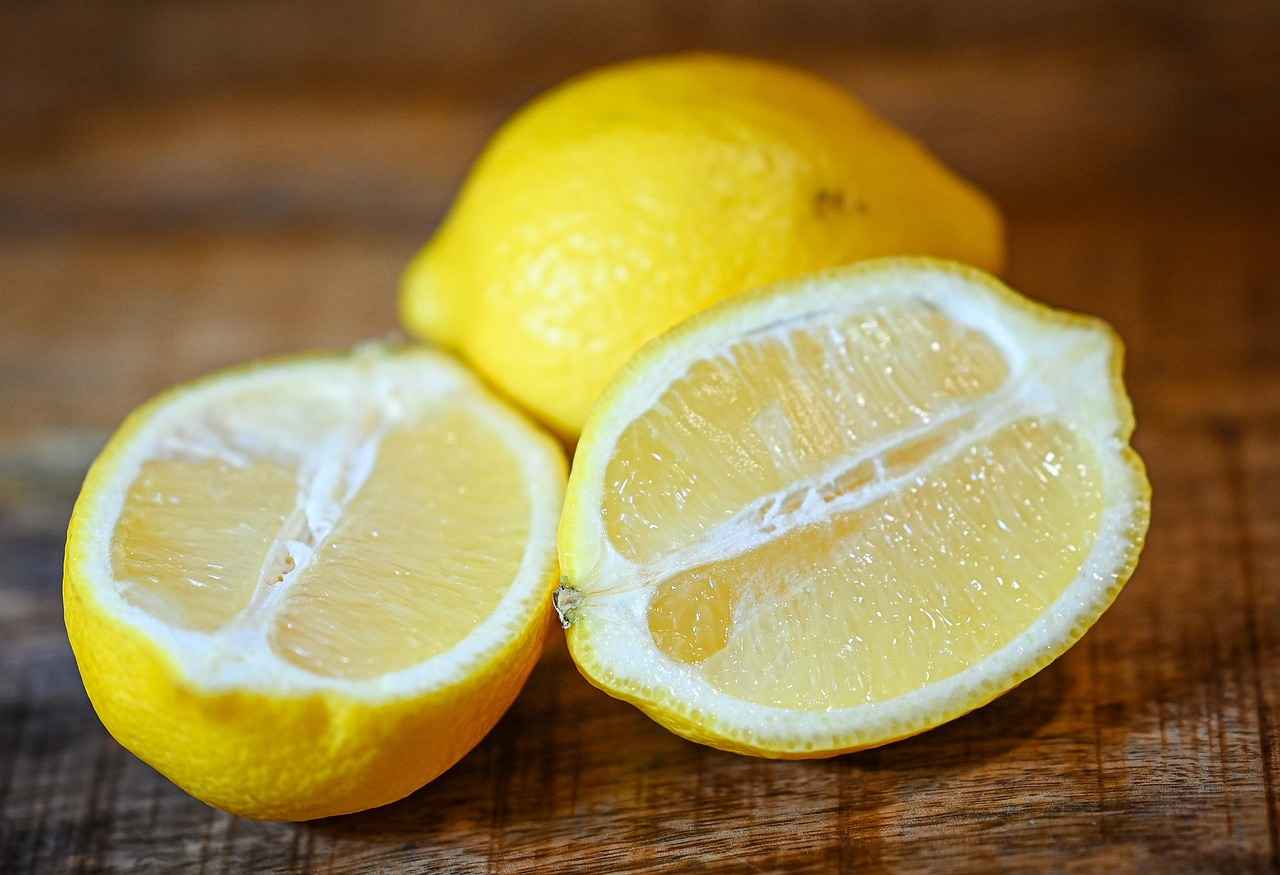This article explores the science behind boiling water with and without salt, examining common misconceptions, chemical interactions, and practical implications for cooking and food preparation.
The Science of Boiling Water
Understanding the boiling point of water is essential in cooking. The boiling point is the temperature at which water transitions from liquid to gas, typically at 100°C (212°F) at sea level. However, this temperature can vary based on altitude and pressure. When impurities, such as salt, are introduced, they can significantly alter these properties.
What Happens When You Add Salt to Water?
When salt (sodium chloride) is added to water, it dissolves into sodium and chloride ions, which interact with water molecules. This interaction disrupts the formation of hydrogen bonds, thereby affecting the boiling point. The phenomenon known as boiling point elevation occurs, where the boiling point increases due to the presence of a solute.
Boiling Point Elevation Explained
Boiling point elevation is classified as a colligative property, meaning it depends on the number of solute particles in a solution rather than their identity. For instance, adding 58 grams of salt to a liter of water can raise the boiling point by approximately 0.5°C. This may seem minor, but it can have significant implications in cooking.
The Role of Sodium Chloride
Sodium chloride is the most commonly used solute in cooking. Its specific properties, such as solubility and ionic nature, make it effective in altering water’s physical characteristics. By elevating the boiling point, salt can help maintain the temperature of boiling water, which can be beneficial for certain cooking methods.
Other Solutes and Their Effects
While salt is prevalent, other solutes can also impact boiling points. For example, adding sugar or other minerals can have similar effects, though their influence varies. Understanding these differences can help in selecting the right ingredients for specific culinary results.
Practical Implications for Cooking
Knowing how salt affects boiling can enhance cooking techniques. For instance, when boiling pasta, adding salt not only raises the boiling point but also enhances the flavor of the pasta. Chefs often recommend salting water to improve the overall taste and texture of the final dish.
Common Misconceptions About Salt and Boiling
Many myths surround the use of salt in boiling water. One common belief is that adding salt speeds up the boiling process. In reality, while salt raises the boiling point, it does not make water boil faster. Instead, it may take longer to reach boiling due to the increased temperature required.
Does Salt Really Make Water Boil Faster?
The notion that salt accelerates boiling is misleading. While the boiling point is elevated, the time it takes for water to reach that elevated temperature can actually increase. Thus, the addition of salt does not yield a faster cooking process.
Does Salt Alter Cooking Times?
Salt can indeed change cooking times. Foods cooked in salted water may cook more evenly and retain moisture better, which can enhance the overall quality of the dish. However, it is essential to find the right balance, as excessive salt can lead to undesirable flavors.
Optimal Salt Concentrations for Boiling
Not all salt concentrations yield the same results. Generally, a concentration of 1-2 tablespoons of salt per gallon of water is recommended for optimal flavor without overwhelming the dish. This balance can enhance the taste of pasta, vegetables, and other foods.
Salt Concentration and Taste
While focusing on boiling, it is crucial to consider how different salt concentrations affect flavor. A well-salted cooking water can make a significant difference in the taste of the final dish, making it essential for chefs to understand the nuances of salt usage.
Safety and Health Considerations
Adding salt to boiling water has health implications, especially for those monitoring their sodium intake. While salt can enhance flavor, excessive consumption can lead to health risks, including hypertension. Thus, it is vital to use salt judiciously in cooking.
Key Takeaways on Salt and Boiling Water
In summary, understanding the science of boiling water with salt can significantly impact cooking techniques. Awareness of boiling point elevation, cooking times, and flavor enhancement can help both chefs and home cooks achieve better culinary results.
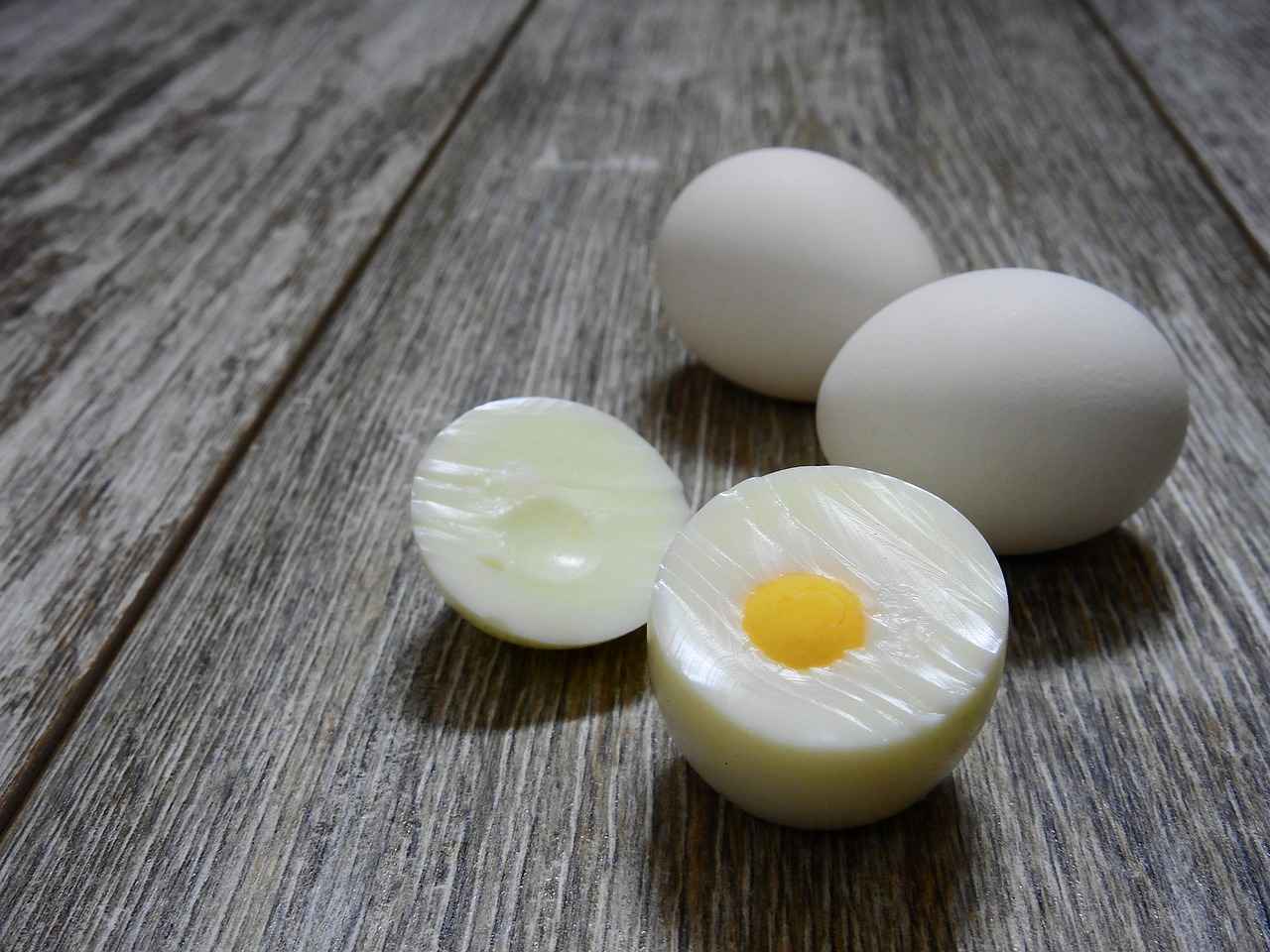
The Science of Boiling Water
Understanding the boiling point of water is crucial in cooking. When water reaches its boiling point, it transforms from a liquid to a gas, creating steam. This process is influenced by various factors, including temperature, pressure, and the presence of impurities.
The boiling point of pure water at sea level is typically 100 degrees Celsius (212 degrees Fahrenheit). However, this temperature can change based on atmospheric pressure. For example, at higher altitudes where pressure is lower, water boils at a lower temperature. This phenomenon can significantly affect cooking times and the overall outcome of dishes.
In addition to pressure, the presence of impurities in water can also impact its boiling point. When substances like salt or sugar are dissolved in water, they disrupt the formation of vapor bubbles, which are necessary for boiling. This disruption leads to a phenomenon known as boiling point elevation, where the boiling point of the solution is higher than that of pure water.
| Factor | Effect on Boiling Point |
|---|---|
| Temperature | Increases boiling point with higher external pressure |
| Pressure | Higher pressure raises boiling point; lower pressure lowers it |
| Impurities | Can raise boiling point due to boiling point elevation |
When cooking, understanding these principles can greatly enhance your culinary skills. For instance, when boiling pasta, the temperature at which the water boils can influence the texture and cooking time of the pasta. A higher boiling point, achieved by adding salt, can lead to a more al dente texture.
Moreover, the role of salt in boiling water is often misunderstood. Many believe that adding salt makes water boil faster. While salt does increase the boiling point, it does not significantly speed up the boiling process itself. Instead, it enhances the flavor of the food being cooked.
In summary, the science of boiling water encompasses various factors that are essential for effective cooking. Understanding the interplay of temperature, pressure, and impurities allows cooks to optimize their techniques and achieve better results in the kitchen.
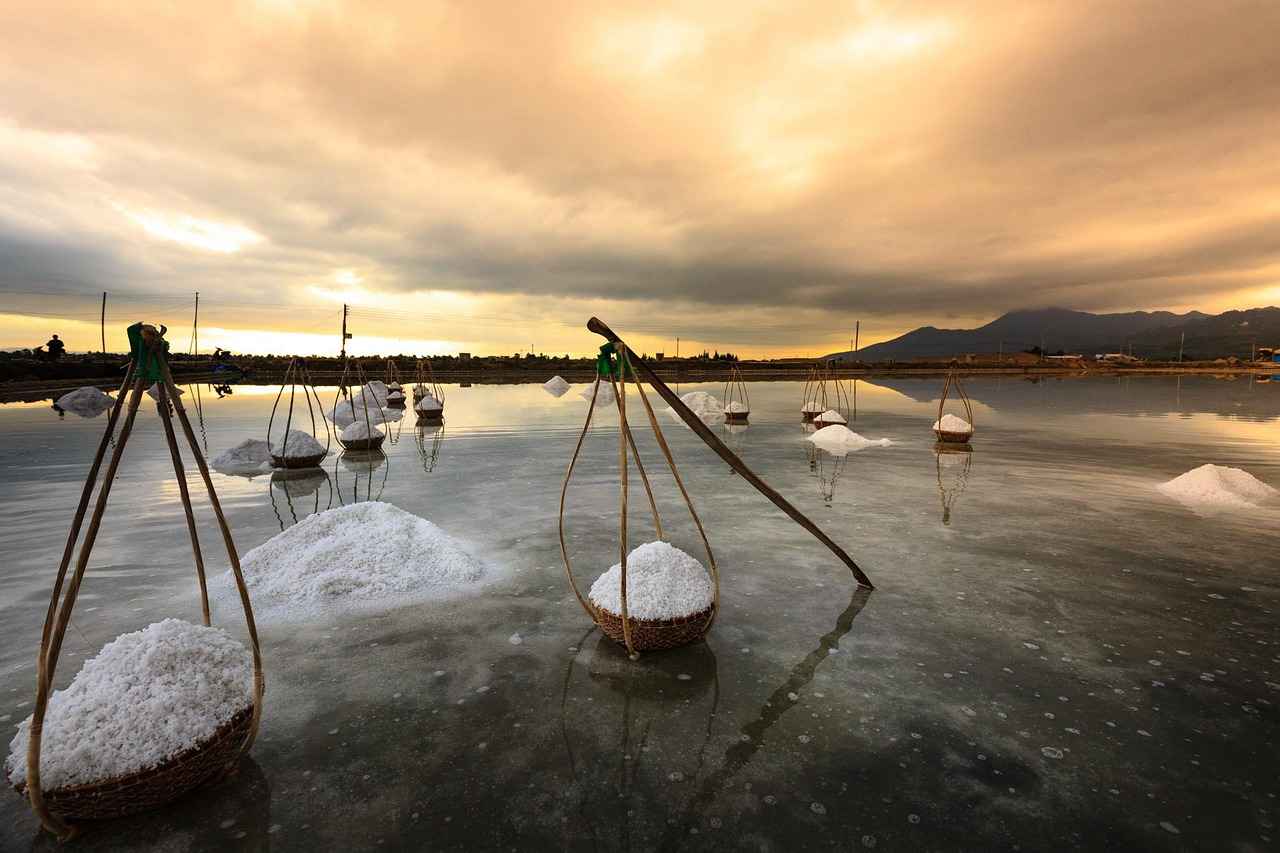
What Happens When You Add Salt to Water?
When salt is added to water, a fascinating chemical interaction occurs that significantly alters the properties of the water. Understanding this interaction is essential for anyone interested in cooking or the science of solutions. This section will explore how salt interacts with water molecules and the implications of these interactions, particularly regarding boiling point elevation.
Salt, primarily composed of sodium chloride (NaCl), dissociates into its constituent ions when dissolved in water. The sodium ions (Na+) and chloride ions (Cl–) interact with water molecules, disrupting the hydrogen bonding that typically exists between water molecules. This disruption has several important effects:
- Colligative Properties: The addition of salt to water is an example of a colligative property, which means that the boiling point of the solution is affected by the number of solute particles present in the solution rather than their identity. This leads to an increase in the boiling point of the water, a phenomenon known as boiling point elevation.
- Increased Boiling Point: Typically, pure water boils at 100°C (212°F) at standard atmospheric pressure. However, when salt is added, the boiling point increases, meaning the water will require a higher temperature to reach its boiling point. This can be particularly useful in cooking, as it can affect the cooking time and texture of certain foods.
- Heat Capacity: Salt also affects the heat capacity of water. With dissolved salt, water can absorb more heat before it reaches the boiling point, which can lead to more efficient cooking.
Furthermore, the extent of boiling point elevation depends on the concentration of salt in the water. For instance, a solution with a higher concentration of salt will have a more significant increase in boiling point compared to a solution with a lower concentration. However, it is crucial to note that while adding salt raises the boiling point, it does not necessarily make the water boil faster. In fact, it may require more time to reach the elevated boiling point.
This phenomenon has practical implications in cooking. For example, when boiling pasta, adding salt not only enhances the flavor but also slightly raises the boiling point of the water, which can improve the cooking process. However, it’s essential to strike a balance; too much salt can lead to an overly salty dish, while too little may not provide the desired flavor enhancement.
In summary, adding salt to water significantly alters its chemical properties, primarily through the mechanism of boiling point elevation. This interaction not only impacts the boiling point but also influences cooking efficiency and food flavor. Understanding these principles can enhance both culinary practices and scientific knowledge.
Boiling Point Elevation Explained
Boiling point elevation is a fascinating phenomenon in the realm of physical chemistry, categorized as a colligative property. This property is crucial for understanding how the presence of solutes, such as salt, influences the boiling point of solvents, particularly water. When a solute is added to a solvent, it disrupts the solvent’s ability to vaporize, thus requiring a higher temperature to reach the boiling point. In this section, we will delve into the science behind boiling point elevation, providing scientific examples to clarify this concept.
To understand boiling point elevation, we first need to recognize the basic principles of boiling. The boiling point of a liquid is the temperature at which its vapor pressure equals the surrounding atmospheric pressure. When a non-volatile solute like sodium chloride (table salt) is dissolved in water, it increases the overall number of particles in the solution. This increase in particle concentration leads to a phenomenon known as vapor pressure lowering, which directly correlates to the elevation of the boiling point.
For instance, when salt is added to water, the dissolved sodium and chloride ions interfere with the formation of vapor bubbles within the liquid. As a result, a higher temperature is needed to allow the vapor pressure to match the atmospheric pressure. According to Raoult’s Law, the extent of boiling point elevation can be calculated using the formula:
ΔT_b i * K_b * m
In this equation, ΔT_b represents the change in boiling point, i is the van ‘t Hoff factor (which indicates the number of particles the solute splits into), K_b is the ebullioscopic constant of the solvent, and m is the molality of the solution. For sodium chloride, i equals 2, since it dissociates into two ions in solution.
As a practical example, consider a scenario where you add 58.5 grams of sodium chloride to one kilogram of water. The calculated elevation in boiling point would be approximately 0.5 degrees Celsius. While this might seem minimal, it can have significant implications in culinary practices, especially in cooking pasta or vegetables, where precise temperature control can affect texture and flavor.
It’s also essential to note that other solutes, such as sugar or alcohol, exhibit similar effects on boiling point elevation, albeit with different magnitudes. Each solute’s specific properties influence how much it affects the boiling point of the solvent. For example, while sugar also elevates the boiling point, its effect is generally less pronounced than that of salt when equal molalities are compared.
In conclusion, boiling point elevation is more than just a scientific curiosity; it is a practical aspect of cooking that can enhance the flavors and textures of food. Understanding this concept allows cooks to make informed decisions about when and how to use salt and other solutes in their culinary endeavors. By grasping the underlying science, one can appreciate the intricacies of cooking and the role that chemistry plays in the kitchen.
The Role of Sodium Chloride
plays a pivotal part in our understanding of boiling water and cooking processes. Sodium chloride, commonly known as table salt, is not just a seasoning; it is a solute that significantly alters the physical properties of water. When sodium chloride is added to water, it dissolves into sodium (Na+) and chloride (Cl–) ions, which interact with water molecules in a fascinating way.
One of the primary effects of sodium chloride on water is the phenomenon known as boiling point elevation. This occurs because the presence of solute particles disrupts the formation of vapor bubbles within the liquid. In pure water, bubbles can form easily when the water reaches its boiling point. However, when salt is added, the water molecules are attracted to the salt ions, making it more difficult for bubbles to form. As a result, the temperature must increase beyond the standard boiling point of 100°C (212°F) for the water to boil. This means that salted water actually boils at a higher temperature than unsalted water.
To illustrate this effect further, consider the concept of colligative properties. These properties depend on the number of solute particles in a solution rather than their identity. When sodium chloride is dissolved in water, it increases the number of particles in the solution, thus raising the boiling point. This principle is not unique to sodium chloride; other solutes can also affect the boiling point, but sodium chloride is the most commonly used in culinary practices.
| Solute | Boiling Point Elevation (°C) |
|---|---|
| Sodium Chloride | +1.8 |
| Sugar | +0.5 |
| Potassium Chloride | +2.0 |
In practical terms, this means that when cooking pasta, for example, adding salt to the boiling water not only enhances flavor but also slightly increases the boiling point. This can lead to more efficient cooking, as the water can reach a higher temperature, which may help in cooking certain foods more thoroughly. However, it is vital to note that the amount of salt added should be balanced; too much salt can lead to undesirable flavors and health concerns.
Moreover, the role of sodium chloride extends beyond just boiling point elevation. It also affects the texture and color of food during cooking. For instance, when boiling vegetables, salt can help maintain their vibrant colors and crisp textures. This is because salt can enhance the permeability of cell membranes, allowing for better retention of nutrients and flavors.
In summary, sodium chloride plays a crucial role in altering the boiling properties of water, which has significant implications in cooking. Understanding how salt interacts with water not only helps in achieving the desired cooking results but also enhances the overall culinary experience. By leveraging the properties of sodium chloride, home cooks and professional chefs alike can improve their cooking techniques, ensuring that flavors are enhanced and food is cooked to perfection.
Other Solutes and Their Effects
When it comes to boiling water, most people are familiar with the common practice of adding salt. However, it is essential to recognize that other solutes can also significantly influence the boiling point of water. This section explores various solutes, their properties, and how they compare to salt in terms of boiling point elevation.
Understanding Boiling Point Elevation
Boiling point elevation is a phenomenon observed when a solute is added to a solvent, in this case, water. The presence of solutes disrupts the ability of water molecules to escape into the vapor phase, thus requiring a higher temperature to reach boiling. While sodium chloride (table salt) is the most commonly used solute, several other substances can also affect boiling points.
- Sugar: Commonly used in cooking and baking, sugar (sucrose) can elevate the boiling point of water. When dissolved, sugar molecules interfere with water’s molecular interactions, similar to salt. However, sugar does not dissociate into ions, leading to a different magnitude of boiling point elevation compared to ionic solutes like salt.
- Alcohol: Ethanol, a common alcohol, has a lower boiling point than water. When mixed with water, it can lower the overall boiling point due to its volatile nature. This interaction is crucial in culinary practices such as making sauces where alcohol is used to enhance flavor.
- Acids: Organic acids like citric acid or acetic acid can also influence boiling points. When added to water, they dissociate into ions, which can contribute to boiling point elevation. This property is often utilized in cooking to preserve food or enhance flavors.
- Other Salts: Beyond sodium chloride, other salts such as potassium chloride or magnesium sulfate can also be used in cooking. These salts can provide similar boiling point elevation effects, but their taste and health implications may differ from table salt.
Comparative Impacts on Boiling
Each solute has a distinct impact on the boiling point of water, influenced by its chemical structure and behavior in solution. For instance, while salt is effective in raising the boiling point due to its ionic nature, sugar’s impact is less pronounced because it does not dissociate into ions. This distinction is crucial for chefs and home cooks when selecting the appropriate solute for their culinary needs.
Moreover, the concentration of the solute plays a critical role in determining the extent of boiling point elevation. Higher concentrations generally lead to greater increases in boiling point, but this must be balanced with the desired flavor profile and health considerations.
Practical Applications in Cooking
Understanding the effects of various solutes on boiling water can enhance cooking techniques. For example, when making pasta, the addition of salt not only raises the boiling point but also enhances the flavor of the pasta. In contrast, using sugar might be more appropriate for certain sweet dishes, while acids can brighten flavors in sauces.
In summary, while salt is a popular choice for altering boiling points, a variety of other solutes can also play significant roles in cooking. By understanding their unique properties and impacts, cooks can make informed decisions that enhance both the cooking process and the final dish.
Practical Implications for Cooking
When it comes to cooking, understanding the role of salt in boiling water can significantly enhance both technique and flavor. Salt is not just an ingredient; it plays a crucial role in the cooking process that can transform your culinary outcomes.
Enhancing Flavor: One of the primary reasons chefs add salt to boiling water is to enhance the flavor of the food being cooked. When pasta or vegetables are boiled in salted water, the salt penetrates the outer layers of the food, resulting in a more flavorful dish. This is particularly important for items like pasta, where the cooking water can contribute to the overall taste of the meal.
Impact on Boiling Point: Adding salt to water raises its boiling point, a phenomenon known as boiling point elevation. This means that salted water will reach higher temperatures before it begins to boil, which can be beneficial for certain cooking methods. For instance, when boiling potatoes, the higher temperature can help cook them more thoroughly and evenly, resulting in a better texture.
Cooking Times: It is essential to note that the addition of salt can also affect cooking times. While many believe that salt speeds up the boiling process, the reality is more nuanced. The increased boiling point can sometimes mean that food takes longer to cook. Therefore, it’s crucial for cooks to adjust their timing based on the amount of salt used.
Salt Concentration: Not all salt concentrations yield the same results. A higher concentration of salt can lead to a more pronounced flavor and a more significant increase in boiling point. However, it is vital to strike a balance; too much salt can overpower the dish and may even alter the texture of certain foods. For example, overly salted water can make vegetables mushy rather than tender-crisp.
Health Considerations: While salt can enhance flavor and cooking efficiency, it is essential to consider health implications. Excessive salt intake is linked to various health issues, including hypertension. Therefore, chefs and home cooks should be mindful of the amount of salt used, not just for flavor but also for health reasons. A good practice is to start with a small amount and adjust according to taste and dietary needs.
Practical Tips for Using Salt in Cooking: Here are some practical insights for using salt effectively in boiling water:
- Start with a tablespoon: For every quart of water, a tablespoon of salt is a good starting point. Adjust based on personal taste.
- Use kosher salt: It dissolves easily and is less salty than table salt, making it easier to control flavor.
- Timing is key: Add salt to the water once it starts to boil to prevent the pot from becoming too salty.
- Taste as you go: Always taste the water before adding food to ensure the flavor is to your liking.
In conclusion, understanding how salt affects boiling can significantly enhance culinary techniques. By appreciating the science behind salt’s impact on boiling water, cooks can make informed decisions that improve both the flavor and texture of their dishes. Whether you are a professional chef or a home cook, these insights can elevate your cooking experience and lead to more delicious meals.

Common Misconceptions About Salt and Boiling
In the realm of cooking, salt is often viewed as a magical ingredient that can enhance flavors and alter cooking processes. However, there are numerous misconceptions surrounding its use, particularly when it comes to boiling water. This section aims to clarify these myths and present the scientific facts behind them.
One of the most common beliefs is that adding salt to water will expedite the boiling process. In reality, while salt does increase the boiling point of water—a phenomenon known as boiling point elevation—it does not make water boil faster. The addition of salt raises the boiling point, meaning that the water needs to reach a higher temperature before it can boil. Therefore, while salt may improve the flavor of the food being cooked, it does not contribute to a quicker boil.
The principle of boiling point elevation is a colligative property, which means it depends on the number of solute particles in a solution rather than their identity. When salt (sodium chloride) dissolves in water, it dissociates into sodium and chloride ions. These ions interfere with the formation of vapor bubbles, which are necessary for boiling. As a result, the presence of salt requires the water to reach a higher temperature to boil.
While salt does not make water boil faster, it can indeed alter cooking times for certain foods. When cooking pasta or vegetables, for example, salt can enhance the overall cooking process. The elevated boiling point allows for better heat transfer, which can lead to improved texture and flavor in the finished dish. However, it’s essential to balance the amount of salt used, as excessive salt can lead to overly salty food.
- Myth: Salt must be added before the water boils.
- Fact: While adding salt before boiling can enhance flavor, it is not necessary. Salt can be added at any point during the cooking process.
- Myth: All salts have the same effect on boiling.
- Fact: Different types of salt (e.g., kosher salt, sea salt, table salt) may have varying effects due to their size and purity, which can influence how quickly they dissolve.
Beyond its impact on boiling, salt plays a crucial role in enhancing the flavor of food. When added to boiling water, salt not only helps to season the food but also impacts the overall cooking process. For instance, vegetables cooked in salted water tend to retain their color and texture better than those cooked in unsalted water.
Understanding the science behind salt and boiling water helps dispel common myths and provides valuable insights for cooking. While salt does not make water boil faster, it can significantly enhance the flavor and texture of the food being prepared. By recognizing these facts, cooks can make informed decisions that improve their culinary outcomes.
Does Salt Really Make Water Boil Faster?
One prevalent belief is that adding salt speeds up the boiling process. Here, we investigate the truth behind this statement.
When it comes to cooking, the process of boiling water is fundamental. Many home cooks and professional chefs alike often sprinkle salt into their pots with the hope of hastening the boiling time. But does salt truly make water boil faster? To answer this question, we must delve into the science of boiling and the effects that salt has on water.
To understand the impact of salt on boiling, we first need to recognize how boiling occurs. Water boils when it reaches its boiling point, which is typically 100 degrees Celsius (212 degrees Fahrenheit) at sea level. However, this boiling point can change based on factors such as pressure and the presence of impurities in the water. When salt is added to water, it acts as a solute, and this changes the properties of the water.
When salt dissolves in water, it disrupts the hydrogen bonding between water molecules. This process is known as boiling point elevation, a phenomenon where the boiling point of a liquid increases when a solute is added. In simple terms, the presence of salt means that the water must reach a higher temperature to boil. Thus, while it might seem intuitive that adding salt would speed up the boiling process, the opposite is actually true: it can take longer for salted water to boil.
To further illustrate this, consider the following table that summarizes the effects of salt on boiling point:
| Concentration of Salt | Boiling Point Increase |
|---|---|
| 0.5% Salt | ~0.2°C |
| 1% Salt | ~0.4°C |
| 3% Salt | ~1.0°C |
This table shows that as the concentration of salt increases, the boiling point of water also rises. Therefore, while adding a small amount of salt may not significantly change the boiling time, larger quantities will certainly have a more pronounced effect.
Moreover, there are practical implications to consider. Many chefs advocate for salting water, not primarily to boil it faster, but rather to enhance the flavor of the food being cooked, particularly pasta. The salt infuses the food with flavor, improving the overall taste of the dish. Thus, it is a common practice to add salt to boiling water, not for speed, but for culinary enhancement.
In conclusion, the belief that salt speeds up the boiling process is a misconception. In reality, adding salt raises the boiling point of water, meaning it actually takes longer for the water to reach its boiling point. Understanding this principle can help both novice and experienced cooks make better decisions in the kitchen, focusing on flavor enhancement rather than speed.
Does Salt Alter Cooking Times?
When it comes to cooking, salt is often seen as just a seasoning. However, its role extends far beyond flavor enhancement. One significant aspect is how salt can alter cooking times and overall food texture. In this section, we will explore the mechanisms through which salt affects the cooking process, providing insights for both home cooks and culinary professionals.
First, it’s essential to understand that salt dissolves in water, creating a saline solution. This process changes the physical properties of the water, particularly its boiling point. The phenomenon known as boiling point elevation occurs when a solute, like salt, is added to a solvent, such as water. The presence of salt disrupts the ability of water molecules to escape into the air, requiring a higher temperature to reach the boiling point. This means that while salted water may take longer to boil, it can subsequently affect cooking times for the food being prepared.
Furthermore, the addition of salt can speed up the cooking of certain foods. For example, when boiling vegetables, salt helps to break down cell walls, allowing them to cook more evenly and quickly. This is particularly important for fibrous vegetables like carrots and green beans, which can take longer to soften. The saline solution penetrates the food, enhancing flavor while simultaneously improving texture.
Moreover, salt can also affect the cooking time of proteins. When cooking meats, for instance, brining (the process of soaking meat in a saltwater solution) can lead to more tender and juicy results. This is because salt helps to denature proteins, allowing them to retain moisture during the cooking process. Consequently, meats that have been brined may require less cooking time compared to those that have not been treated with salt.
In addition to these effects, the concentration of salt in your cooking water plays a crucial role. A higher concentration of salt can lead to a more significant change in cooking times. However, it’s essential to strike a balance; too much salt can overpower the dish and may lead to health concerns associated with high sodium intake. Therefore, understanding the right amount of salt to use is vital for achieving optimal results.
Practically speaking, cooks can use salt strategically to enhance their dishes. For instance, adding salt to water when cooking pasta not only flavors the pasta but also affects its cooking time. The salted water allows the pasta to cook more evenly, resulting in a better texture and taste. Similarly, when preparing grains, such as rice or quinoa, adding salt can help maintain the integrity of the grains while also improving flavor.
In conclusion, the impact of salt on cooking times is multifaceted. It not only alters the boiling point of water but also enhances the flavor and texture of various foods. By understanding how to use salt effectively, cooks can improve their culinary results and create delicious, well-cooked meals.
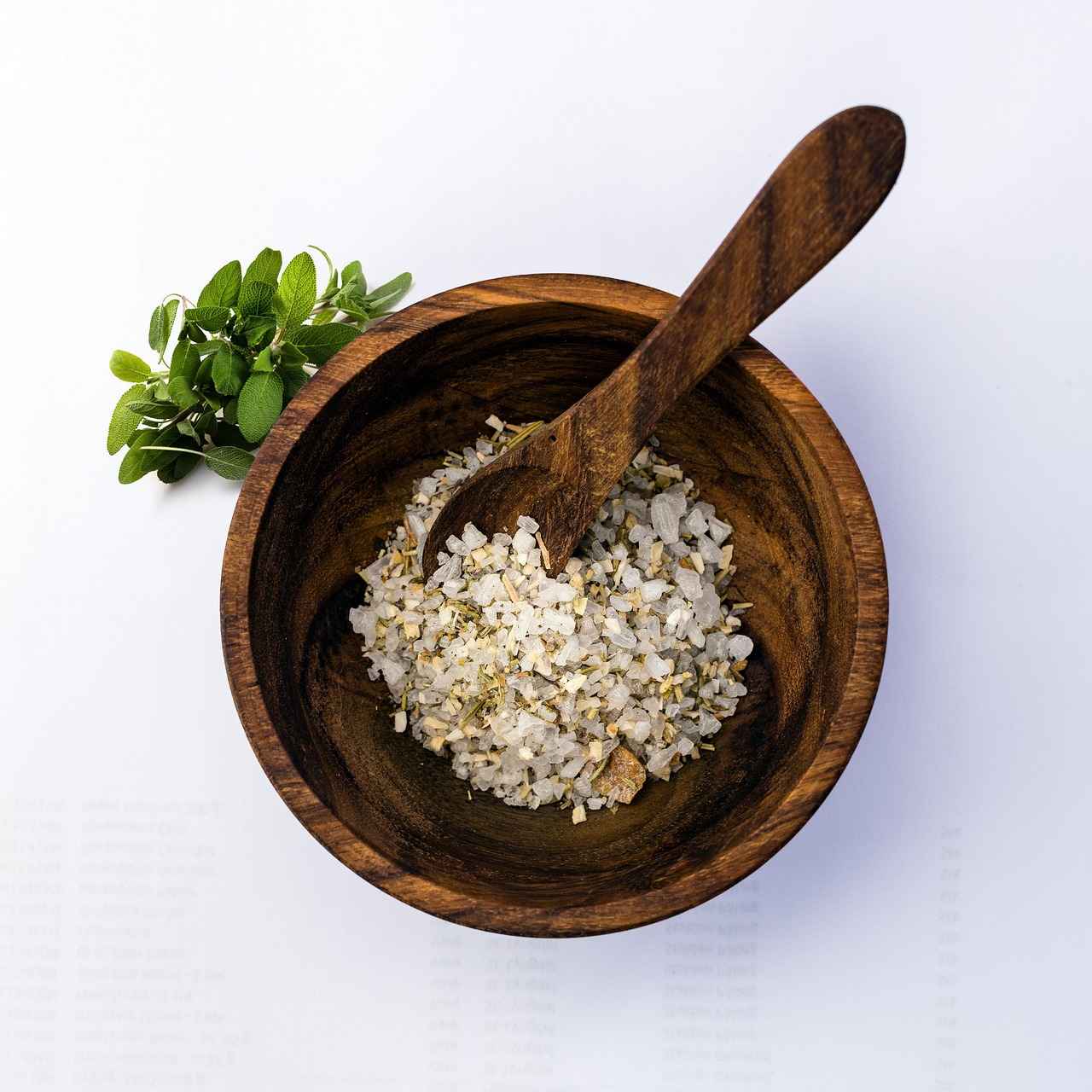
Optimal Salt Concentrations for Boiling
When it comes to boiling water, the concentration of salt you use can significantly affect the outcome of your cooking. Understanding the optimal salt concentrations is essential for achieving the best results, both in terms of boiling efficiency and flavor enhancement. This section will guide you through the ideal amounts of salt to use, ensuring that you not only boil water effectively but also enhance the taste of your dishes.
To begin with, it’s important to recognize that not all salt concentrations yield the same results. The amount of salt you add to water can alter its boiling point, a phenomenon known as boiling point elevation. This effect occurs because the presence of salt ions disrupts the formation of vapor bubbles in the water, requiring a higher temperature to reach the boiling point. However, the concentration of salt plays a crucial role in determining how much the boiling point is elevated.
- Low Concentration: A pinch of salt (about 1/8 teaspoon per quart) can enhance the flavor of the water without significantly affecting the boiling point.
- Moderate Concentration: Adding around 1-2 teaspoons of salt per quart of water can help improve the boiling efficiency while also imparting flavor to the food.
- High Concentration: Using more than 2 tablespoons of salt per quart can lead to diminishing returns, as the water will boil at a higher temperature but may also result in overly salty food.
When determining the right amount of salt, consider the type of food being cooked. For example, pasta benefits from a saltier boil, as it absorbs some of the salt during cooking, enhancing its flavor. Conversely, vegetables may require less salt to avoid overpowering their natural taste.
Moreover, the type of salt used can also influence the results. Table salt, sea salt, and kosher salt all have different sizes and solubility rates, which can affect how quickly they dissolve and their overall impact on boiling water. For instance, kosher salt, with its larger crystals, may take longer to dissolve, potentially altering the immediate boiling process.
In addition to flavor, it’s crucial to consider health implications. While salt can enhance taste, excessive consumption can lead to health risks, including hypertension and cardiovascular issues. Therefore, it’s wise to find a balance between flavor enhancement and health consciousness.
In summary, finding the optimal salt concentration for boiling water is a balance of enhancing flavor while maintaining health considerations. By understanding the effects of different salt levels and types, you can make informed decisions that elevate your cooking. Always remember to adjust your salt usage based on the specific food you are preparing, ensuring that you achieve the best possible results in both flavor and cooking efficiency.
Salt Concentration and Taste
When it comes to cooking, the role of salt extends beyond mere seasoning; it plays a pivotal role in enhancing the overall flavor profile of dishes. This is particularly evident when boiling water for cooking various foods. The concentration of salt in boiling water can significantly influence the taste of the final product. Understanding how different salt concentrations affect flavor is essential for both amateur cooks and seasoned chefs alike.
To begin with, it’s important to recognize that salt acts as a flavor enhancer. When dissolved in water, salt ions interact with food molecules, which can amplify the perception of flavors. This interaction is particularly pronounced when cooking vegetables, pasta, or grains. For instance, boiling vegetables in salted water can help retain their natural sweetness while preventing them from becoming bland. The right concentration of salt can elevate the taste, making the dish more enjoyable.
Moreover, the concentration of salt directly affects the boiling point of water. This phenomenon, known as boiling point elevation, means that water with a higher salt concentration will boil at a temperature slightly above 100°C (212°F). While this may seem negligible, it can impact the cooking process, leading to a more efficient transfer of heat and better flavor infusion. For instance, when boiling pasta, a higher salt concentration can help the pasta absorb flavors more effectively, resulting in a more flavorful dish.
However, the key is to find the optimal salt concentration. Too little salt may lead to under-seasoned food, while too much can overwhelm the dish and mask the natural flavors of the ingredients. A general guideline for boiling water is to use about 1 to 2 tablespoons of salt per gallon of water. This concentration is typically sufficient to enhance flavor without making the food overly salty.
It’s also worth noting that different types of salt—such as kosher salt, sea salt, and table salt—have varying levels of salinity and flavor intensity. For example, kosher salt is often preferred by chefs for boiling because of its larger grain size, which allows for more even distribution and easier measurement. On the other hand, table salt, being more finely ground, can dissolve quickly but may lead to over-salting if not measured carefully.
In addition to enhancing flavor, salt also plays a role in the texture of cooked foods. For example, adding salt to boiling water when cooking potatoes can help them maintain their shape and texture, preventing them from becoming mushy. This is particularly important for dishes where texture is key, such as potato salads or gratins.
In summary, the concentration of salt in boiling water is a crucial factor that can significantly influence the flavor and texture of cooked foods. By understanding the science behind salt’s interaction with water and food, cooks can make informed decisions that enhance their culinary creations. Experimenting with different salt concentrations can lead to discovering the perfect balance that elevates a dish from ordinary to extraordinary.
Safety and Health Considerations
When it comes to cooking, the addition of salt to boiling water is a common practice, often aimed at enhancing the flavor of food. However, it is crucial to recognize that this seemingly simple act carries health implications that merit consideration. This section will explore the balance between flavor enhancement and the potential health risks associated with excessive salt intake.
Salt, primarily composed of sodium chloride, plays a significant role in our diets. While sodium is an essential nutrient that helps regulate blood pressure and fluid balance, excessive consumption can lead to serious health issues. The World Health Organization recommends that adults limit their sodium intake to less than 2,300 mg per day, which is roughly equivalent to one teaspoon of table salt. Unfortunately, many individuals exceed this limit, often unknowingly, through processed foods and added salt in cooking.
When salt is added to boiling water, it not only enhances the flavor of the food but also affects the cooking process. The presence of salt raises the boiling point of water, a phenomenon known as boiling point elevation. This means that while cooking, food may take slightly longer to reach the desired texture, which can be beneficial for certain dishes. However, this added time could also lead to overcooking if not monitored closely.
Moreover, the health implications of consuming too much salt cannot be overstated. High sodium intake is linked to an increased risk of hypertension (high blood pressure), which is a significant factor in the development of heart disease and stroke. Additionally, excessive salt consumption can lead to kidney damage and exacerbate conditions such as osteoporosis and stomach cancer.
To mitigate these risks while still enjoying the benefits of salt in cooking, it is essential to adopt a mindful approach. Here are some practical tips:
- Measure Your Salt: Use measuring spoons instead of pouring directly from the container to avoid over-salting.
- Choose Quality Over Quantity: Opt for high-quality salts, such as sea salt or Himalayan pink salt, which may contain trace minerals and can enhance flavor with less quantity.
- Balance Your Diet: Incorporate fresh fruits and vegetables, which are naturally low in sodium, into your meals to counterbalance salt intake.
- Educate Yourself: Read food labels to understand sodium content in processed foods and make informed choices.
It is also beneficial to explore alternatives to salt for flavor enhancement. Herbs, spices, and citrus can add depth to dishes without contributing to sodium levels. Experimenting with these alternatives can lead to healthier eating habits and a more varied palate.
In conclusion, while adding salt to boiling water can enhance the cooking process and flavor, it is essential to remain aware of the health risks associated with excessive sodium intake. By practicing moderation and exploring flavorful alternatives, individuals can enjoy delicious meals without compromising their health.
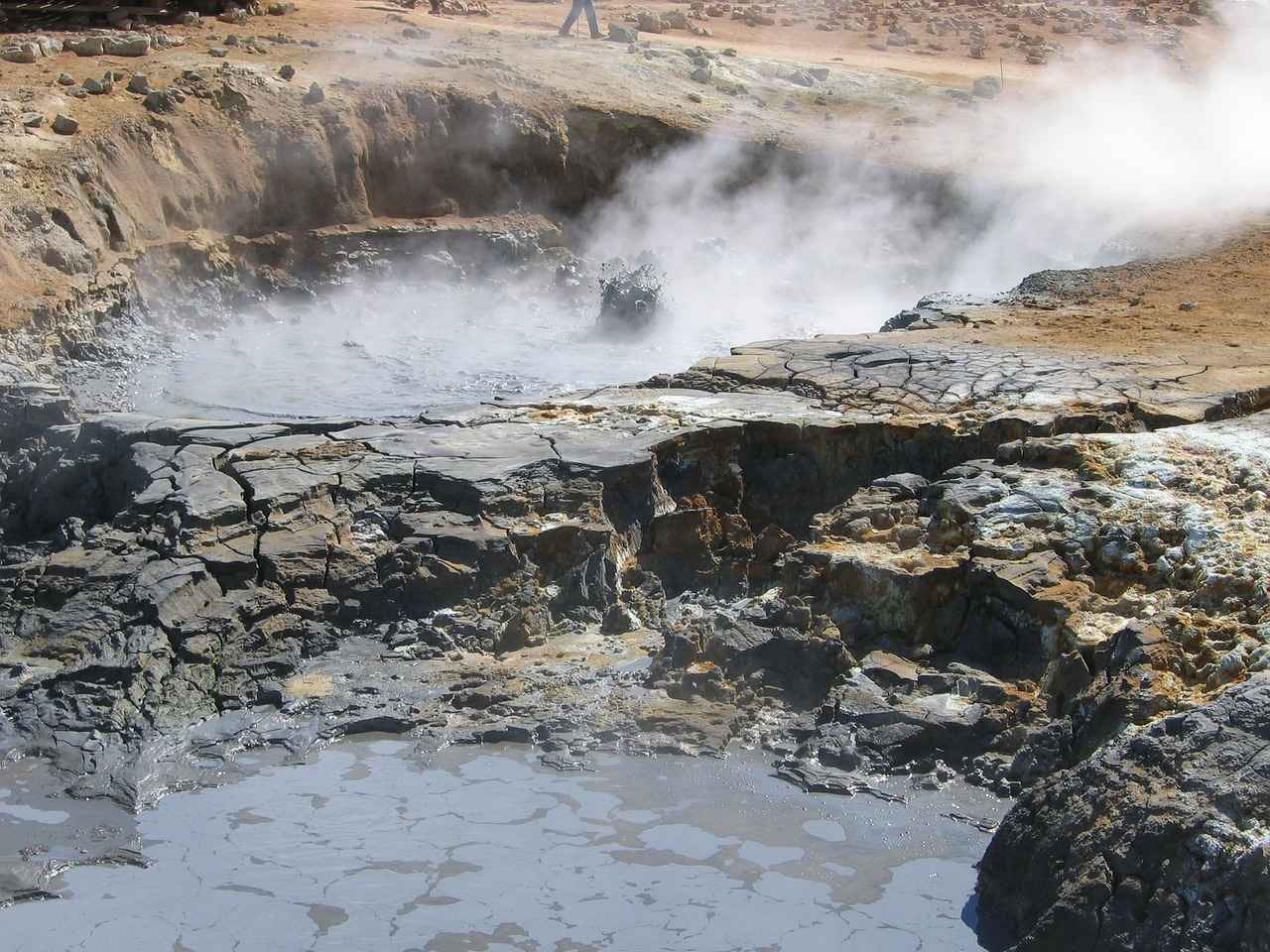
Conclusion: Key Takeaways on Salt and Boiling Water
In the realm of culinary science, understanding the role of salt in boiling water is essential for both amateur cooks and seasoned chefs. This section aims to encapsulate the key insights derived from scientific research and practical applications concerning the use of salt when boiling water.
First and foremost, it is important to recognize that adding salt to water affects its boiling point. This phenomenon, known as boiling point elevation, occurs because the presence of salt ions interferes with the formation of vapor bubbles, which are necessary for boiling. As a result, the boiling point of the water is raised, meaning that it requires a higher temperature to reach the boiling stage.
Moreover, the amount of salt added plays a crucial role in this process. While a small amount of salt can enhance the flavor of food, excessive salt can lead to a significant increase in the boiling point, which may not be desirable in every cooking scenario. Therefore, understanding the optimal salt concentration can help in achieving the best culinary results.
- Flavor Enhancement: Salt not only elevates the boiling point but also enhances the flavor of the food being prepared. This dual purpose makes it a staple in many kitchens.
- Cooking Times: The addition of salt can alter cooking times, as it changes the temperature dynamics within the pot. Foods may take longer to cook if the water is significantly salted.
- Health Considerations: While salt can improve taste, it is essential to balance flavor enhancement with health risks associated with excessive sodium intake.
Common misconceptions regarding salt and boiling often lead to confusion. Many people believe that adding salt will make water boil faster; however, this is a misunderstanding of the scientific principles involved. In reality, while salt does raise the boiling point, it does not significantly speed up the time it takes for water to reach boiling temperature.
In practical terms, when preparing to boil pasta or vegetables, it is advisable to add salt once the water has reached a rolling boil. This method not only ensures that the water boils effectively but also allows the salt to dissolve quickly, imparting flavor to the food without overly altering cooking times.
In summary, the use of salt in boiling water is a nuanced topic that intertwines culinary practices with scientific principles. By understanding the interactions between salt and water, cooks can make informed decisions that enhance both the flavor and texture of their dishes. Remember, the key takeaways are:
- Salt raises the boiling point of water, requiring higher temperatures for boiling.
- Optimal salt concentrations can improve flavor without compromising cooking efficiency.
- Health considerations should guide salt usage in cooking to prevent excessive sodium intake.
By keeping these insights in mind, you can elevate your cooking techniques and achieve better results in the kitchen.
Frequently Asked Questions
- Does adding salt make water boil faster?
No, adding salt actually raises the boiling point of water, which means it takes longer to reach a boil. While it may seem counterintuitive, the science behind it shows that salt changes the water’s properties, causing a delay in boiling.
- How does salt affect the boiling point of water?
When salt is dissolved in water, it disrupts the hydrogen bonding between water molecules. This results in a phenomenon known as boiling point elevation, where the boiling point increases, making it necessary to heat the water to a higher temperature before it starts to boil.
- What is the optimal amount of salt to add for cooking?
The optimal salt concentration can vary, but a common recommendation is about 1-2 tablespoons of salt per gallon of water for boiling. This amount enhances flavor without overwhelming the dish, striking a balance between taste and health considerations.
- Does salt change cooking times?
Yes, adding salt can alter cooking times. It can help foods cook more evenly and may even improve texture. However, it’s essential to find the right balance, as too much salt can lead to overly salty dishes.
- Are there any health risks associated with adding salt to boiling water?
While salt enhances flavor, excessive intake can lead to health issues like high blood pressure. It’s crucial to use salt judiciously, keeping health considerations in mind while enjoying flavorful meals.
